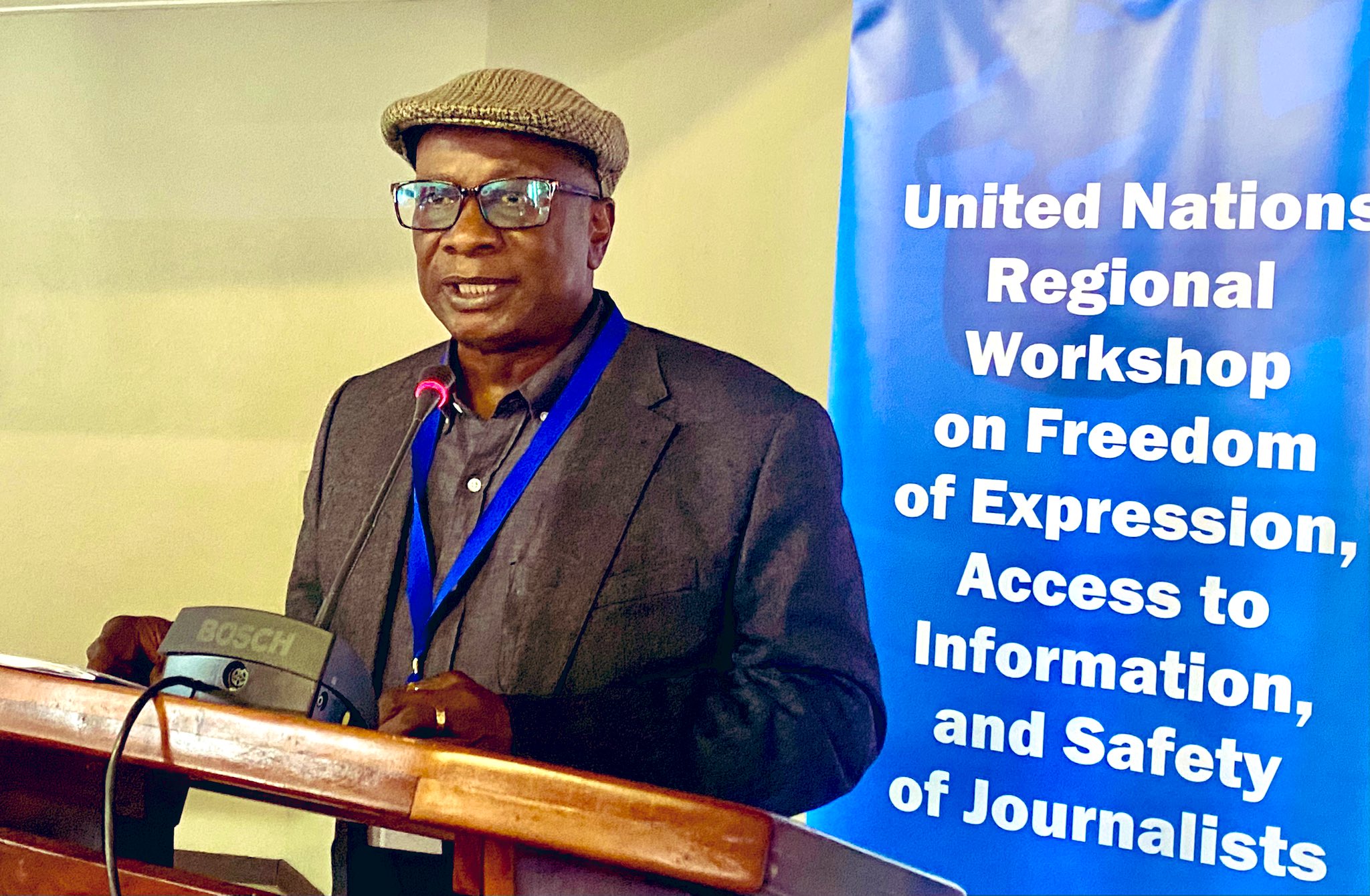|
Getting your Trinity Audio player ready...
|
Freedom of Expression, Freedom of Information, and Safety of Journalists in Sub-Saharan Africa and beyond are sacrosanct virtues that should be upheld, Mr. Edward Kallon, the United Nations (UN) Zimbabwe Resident Coordinator has said.
He made the remarks today at the UN Regional Workshop to Upscale UN-wide Understanding of the Rights to Freedom of Expression, Access to Information, and Safety of Journalists in Sub-Saharan Africa that kicked off in the resort city of Victoria Falls.
The workshop was convened by Richard Moyo, the Minister of State for Provincial Affairs and Devolution for Matebeleland North Province in partnership with Professor Lidia Arthur Brito, the UNESCO Regional Director for Southern Africa and Representative to SADC and Zimbabwe.
Mr. Kallon said freedom of expression and Freedom of Information are Siamese twins and that the workshop comes at an opportune time when the UN has rolled out a year-long campaign on human rights along the 75th Anniversary of the Universal Declaration of Human Rights.
He said calling for the revitalization of the Universal Declaration of Human Rights during his address to the Human Rights Council in February this year, the Secretary-General reminded stakeholders to remember that the UDHR is a solution to all contemporary challenges – political, social, economic, and cultural.
As stakeholders deliberate and exchange over the next two days, Mr. Kallon expressed hope that as a regional grouping of RCs, in the spirit of the human rights at 75 initiative, they will leave the workshop with the commitment to a set of pledges to advance the rights to Freedom of Expression, Freedom of Information and Safety of Journalists in Sub Saharan Africa.
He alluded to the scenario whereby the Secretary-General expressed His concern that Freedom of expression is in freefall and the number of media workers killed around the world last year rose by a horrific 50 percent.
“In July 2023 the United Nations will launch a new Agenda for Protection. This important initiative will seek to strengthen support from across the United Nations system to Member States to protect people and their rights, both in times of peace and in times of crisis and conflict.”
He said the United Nations recognizes the media’s tireless commitment to fact-checking stories and social media posts that are read every day.
“Without Journalists, it is not easy to achieve SDG Target 16.10 which ensures public access to information and protects fundamental freedoms, in accordance with national legislation and international agreements.
“In the next two days, we are privileged to have the time to listen to you and engage in a candid conversation on how we can strengthen our common resolve to the promotion of freedom of expression, freedom of information and the safety of journalists and media workers in Africa,” the UN Resident Coordinator added.
He emphasised that Freedom of Expression cannot be seen in isolation from the social, economic, and democratic processes of a country or the work context.
In 1948, that is 75 years ago, Freedom of Expression was given international legal status enshrined under Article 19 of the Universal Declaration of Human Rights. The article states that the fundamental right of freedom of expression encompasses the freedom to “to seek, receive and impart information and ideas through any media and regardless of frontiers”.
Over time, the Freedom of Expression encapsulated within Freedom of Information has been reflected in several regional human rights instruments, including the African Charter on Human and Peoples’ Rights.
Freedom of Expression calls for an open yet responsible information-sharing regime, guaranteed by law, and is an essential characteristic of a people-centred democracy and development.
Mr. Kallon said the responsible two-way flow of information helps citizens to articulate and exercise their rights and to make informed political and economic choices, and for a state to dialogue, receive feedback, and provide a response.
“When practiced in this way, it is a win-win. And it is good to note that the senior Government officials including Presidents that we work with are on social media marketing their policies and political postures, and actively sharing their perspectives in local and international media in a form of opinion editorials, press releases, reportages and paid advertisement including on outdoor media such as billboards. By equal measure citizens and various media as platforms that bring together stakeholders should have unfettered freedom within agreed-to self-regulated engagement or bounds of a legislative/an ACT to express their ideas, perspectives, and aspirations.”






